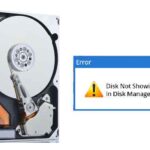Compliance management is an integral part of any successful business. It helps ensure that all the laws, regulations, and standards are being followed by employees and suppliers, protecting companies from legal and financial risks. As such, businesses need to have an efficient compliance management solution in place for their operations.
One way to ensure efficient compliance management is through specialized software. This software type is designed to help businesses stay compliant with relevant laws and regulations. The software can track employee certifications and qualifications, manage supplier information, monitor customer service quality standards, store audit documents, and more – all in one easy-to-use system.
Having a centralized compliance management system helps businesses streamline their processes and reduce the time they spend on compliance-related tasks. It also allows them to quickly update information when required, ensuring that all documents are up-to-date and accurate. Furthermore, businesses can use compliance management software to monitor employee performance and ensure they adhere to organizational policies and procedures.
Organizations can also benefit from using a compliance management system by accessing real-time data about their operations. This data can be used for risk assessment purposes or for investigating potential legal issues. Additionally, advanced reporting capabilities allow companies to identify trends or recurring issues in order to take proactive action. This helps protect companies from unexpected problems and saves them time and money.
The benefits of having an efficient compliance management solution in place are evident. It reduces the time and effort needed to stay compliant while providing the tools necessary to identify and address potential risks quickly. Furthermore, it provides organizations with real-time data that can be used for analyzing performance or investigating legal issues. With these advantages, businesses can remain compliant and protect themselves from financial and legal risks – both now and in the future.
An effective compliance management solution should include the following
1- Automated monitoring: Automated monitoring tools can help businesses track and detect any irregularities in the system. This can help identify any potential compliance issues before they become a problem.
2-Risk assessment: Risk assessment tools allow businesses to identify and plan for potential risks accordingly. This can help reduce the risk of non-compliance.
3–Regular reviews: Regular reviews of all compliance-related activities can help identify areas where the business is not compliant.
4- Document management: Document management tools are essential for ensuring that all documents related to compliance are up-to-date and accurate.
5–Training and education: The success of compliance depends on practical skills tracking. Employees that meet all necessary industry skill criteria and certification standards are verified in the system as having received the required training, credentials, and certifications. The allocations of employee skill levels with updated dates are fully audited. When skills need to be recertified, automated early warning email notifications are available to notify the employee or supervisor.
Traceability information on tools, test equipment, and other necessary equipment can be gathered within the compliance management solution and verified back to the required calibration and re-certification intervals. In addition, transactional data can be collected and sent back to an organization’s ERP/MES system to create accurate, complete, and up-to-date records.
6-Audits: Audits are essential for ensuring the business is compliant and identifying areas where improvement is needed.
7-Reporting: Reporting tools can help businesses track and analyze compliance-related data to identify any potential problems or areas of improvement. Further, the success of compliance also depends on practical skills tracking. Employees that meet all necessary industry skill criteria and certification standards are verified in the system as having received the necessary training, credentials, and certifications. The allocations of employee skill levels with updated dates are fully audited. When skills need to be recertified, automated early warning email notifications are available to notify the employee or supervisor.
Traceability information on tools, test equipment, and other necessary equipment can be gathered within the compliance management solution and verified back to the essential calibration and re-certification intervals. In addition, transactional data can be collected and sent back to an organization’s ERP/MES system to create accurate, complete, and up-to-date records.
The right compliance management solution can help businesses remain compliant and successful. By implementing an efficient compliance management system, companies can ensure that they meet all applicable laws and regulations and prevent any potential compliance issues before they arise.
In conclusion, an efficient compliance management system is essential for any successful business. Not only does it help companies stay up-to-date with laws and regulations, but it also provides them with tools to monitor employee performance and quickly recognize any potential problems. In addition, by investing in a quality compliance management software solution, businesses can ensure they remain compliant and protect themselves from financial and legal risks.
By investing in an efficient compliance management solution, businesses can achieve their desired success through sound regulatory compliance practices. Compliance management software is the key to staying compliant and reducing risk for any organization. Its centralized system, real-time data, advanced reporting capabilities, and comprehensive features offer a complete package for successful business operations.



















Add Comment